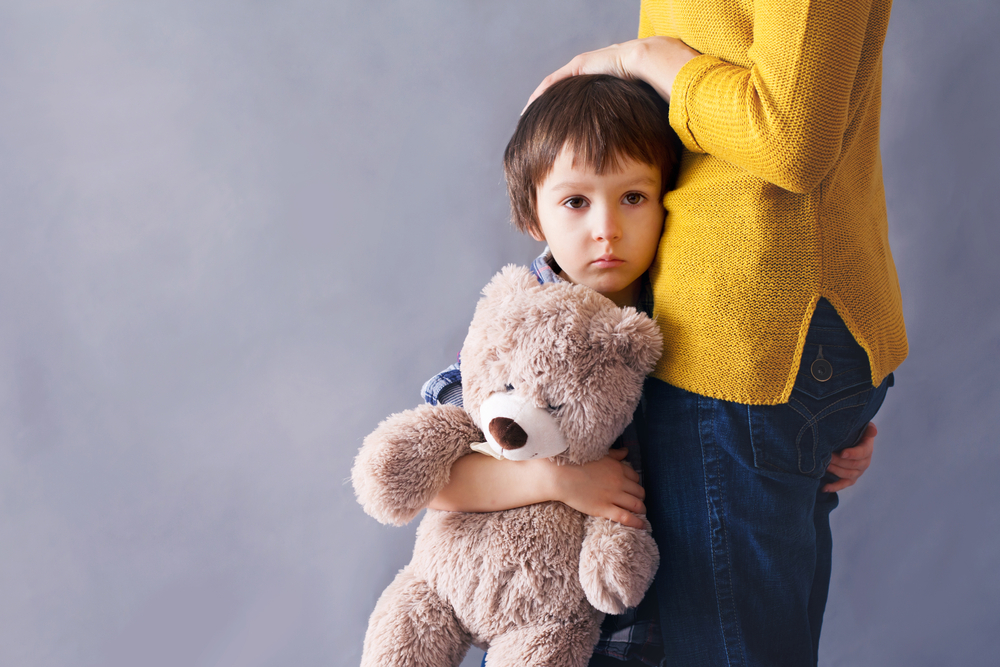The loss of a pet is difficult and requires patience and compassion for all those affected. If you have children, the loss brings additional confusion and questions about what death is. Children express grief in different ways than adults. Finding ways to help them deal with the loss of a pet is crucial to allowing them closure and healing.
If your child is mourning a pet’s death, it can be heartbreaking. You may want to intervene so that they don’t feel the pain. The team at Union Lake Veterinary Hospital is here to help you during this difficult time with suggestions and support.
A Child’s Grief at the Loss of a Pet
While you are dealing with your own grief, your child may be grieving, but in different ways. Bereavement reactions in children are based on age, gender, development level, family circumstances, personality, etc.
The age of a child can help you understand how they express grief.
- Toddler – Common responses to death include looking for the pet who has died, crying, and irritability. It can also include wanting to be held more, and becoming less active/quiet.
- Preschooler – This age may look for the pet, dream or talk about them. They may talk to them as if they were alive, believing that they will come back.
- Primary Schooler – This age can be confused thoughts about death, despite understanding the basics of death. There may blame themselves, have dreams, be more distracted than usual, be anxious/afraid, and withdraw.
- Children aged 10-14 – This age understands that death is final so they may feel sadness, act out, withdraw, try to please family members, be anxious about other family members, or talk about the death/ask questions.
- Teenager – This age can have difficulty concentrating at school, feel overwhelmed by emotions, be unsettled in class, feel anxiety, blame themselves for the death, or have difficulty expressing feelings.
Each of these reactions is common for the child’s developmental stage, but each child is different. Talking to your kids about the loss of a pet is the best way to understand what their needs are and to get a better sense of how they’re responding.
5 Tips for Supporting Your Kid After the Loss of a Pet
1. Give your child permission to go through the grief – It’s hard to see a child going through grief, we understand. By allowing them the space for grief, you give them the tools to deal with strong emotions and gain strength and empathy.
2. Consider a memorial service – The act of honoring your beloved pet can be therapeutic and offer closure for your child. A small service in the backyard, or wherever appropriate, can open up communication from your child about how they are feeling. It gives them the chance to say goodbye to their four-legged friend.
3. Be honest and real – You may want to avoid talking about your pet, but what’s healthier for all family members is to communicate openly. Express your own sadness, anger, and feelings of helplessness over the death. Get in touch with your own feelings and show that they are okay as a model of healthy grief.
4. Know that each child is unique – Not every child will react to the loss with sadness. Some may even disregard the loss, while others obsess. The expression of grief can be immediate or delayed. Know that your child is processing the loss in their own way and timeline.
5. Get outside help, when needed – If you notice that your child is experiencing more than average sadness, depression, or anger, a grief counselor or family counselor may be helpful. Having a professional guide you and your family through the process can help avoid any possible long term depression or isolation.
If you have recently lost a pet, our condolences. Pet loss is a profound experience that can shake everyone in the family. Grief over a furry one takes time and the support needed to process the hurt. If we can answer any questions about the loss of a pet, please do not hesitate to call.

